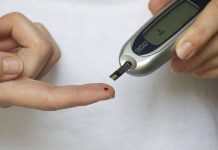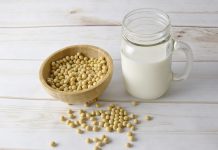Several women experience body composition changes when menopause symptoms begins, generally around 45 years of age or so. One thing that happens when women reach this stage in their life is weight gain. Oftentimes, women blame menopause for gaining weight, or they blame treatments for it.
But, a woman’s lifestyle, as well as her age, might be the reasons for the change in weight. When we get older, our metabolism slows down, and lean body mass declines when we get older, while our body fat builds up during our later adult life. (Medlineplus.gov. (2016))
How the Change of Life Affects Body Composition – Menopause and Body Composition
Findings:
“the truth is that many older females in North America struggle to lose weight and stay in shape after menopausal symptoms start”
Researchers have discovered that females who are going through pre-menopausal symptoms begin to lose their lean body mass and their body fat accumulated twice the amount as before. (NAMS.org. (2019)) After this natural life event is in full-fledge progression, the changes in body mass and body fat stabilized. However, during research, there was evidence regarding racial/ethnic diversities that states that it does affect body composition. (NAMS.org. (2019))
Therefore, studies suggest that the change of life is why many women notice their body composition changing – some women start to notice a different shape of their body (one the hips and thighs, and sometimes the waist and stomach). Some women experience what they think is bloating of the stomach and are unable to lose the tummy weight during the change. More studies are required to determine the exact role the change of life plays in a woman’s body composition. (NAMS.org. (2019))

Despite the diverse contributions of “the change of life” and growing older to gaining weight and body composition, the truth is that many older females in North America struggle to lose weight and stay in shape after menopausal symptoms start. (NAMS.org. (2019)) Gaining too much weight, especially when we are older, can result in health issues (like heart disease, diabetes, hypertension, osteoarthritis, and some forms of cancer, which could include colon cancer and breast cancer). (NAMS.org. (2019))
Other issues that occur when women go through the change is lower sex drive/libido or disinterest in sex, lack of physical and/or mental energy, lower mobility, low self-esteem, and additional issues.
What Other Studies Say
According to The North American Medical Society, (NAMS.org. (2019)), the bond between the change of life and adaptations in a woman’s body composition are not always understood completely. While a few additional research have examined the effect on a woman’s weight gain and body changes, the study of Women’s Health Across the Nation delivers adequately large and comprehensive information, which allows researchers to unravel the effects of sequential aging, as well as generative aging.
During the research process (Ives. News-medical.net. (2019)), eighteen years of information was gathered, which evaluated women’s body composition, utilizing a model that gave researchers an image of that composition when each woman began menopausal symptoms and after. Each study documented racial/ethnic diversities during the study as well; and hormone therapy.
“there was no evidence that this natural change in a woman’s body led to weight gain”
Does Menopause Affect Body Composition?

Until today (Ives. News-medical.net. (2019)), there was no evidence that this natural change in a woman’s body led to weight gain (body fat increase and lean body mass loss). Studies demonstrate that a mere extent of body weight doesn’t demonstrate what is occurring beneath the skin. Additional studies have revealed that, as women age, their body mass index is not a dependable forecaster of certain conditions like heart disease and diabetes (Type 2).
Such related changes in lean body mass and body fat might be a cause for the reduction in the capability to determine the volume of body mass in women who are 45 years of age or older. (Ives. News-medical.net. (2019))
How to Stay Fit During Menopause
“Sometimes, changing eating habits and exercising daily works for some women”

Exercise is a vital part of any individual’s life. But, when a woman is going through the change and has menopause symptoms, it is even more important to exercise daily. By exercising, you might have more mental and physical energy, and you may feel less depressed and gain some self-esteem. Eating less carbohydrates might help too. Drinking more water and less coffee and soda might be helpful as well.
If you are eating better and exercising every day, to no avail. You might wish to try a supplement, especially if you are having libido issues too.
Recommended Supplements to Stay Healthy in Your Menopausal Years
• Fish Oil Capsules
• Dopamine
• Ginseng
• Vitamin B12
• Coenzyme Q10, and
More… (WebMD.com. (2017))
From reviewing research studies (Ives. News-medical.net. (2019)), it appears that the “change” might affect body composition. Many females experience changes during this time, even in pre-menopausal stage. Some of the things that women struggle with the most are weight gain, lack of energy (mentally and physically), low self-esteem, libido (low or no sex drive – unable to have an orgasm), lack of mobility and additional issues.
Sometimes, changing eating habits and exercising daily works for some women. Sometimes, nothing works, even to help with menopause and body composition, so women might need to try a different route, like supplements, for instance.
Sources and References:
www.medlineplus.gov/menopause.html
www.healthline.com/nutrition/lose-weight-in-menopause
www.webmd.com/a-to-z-guides/prevention-15/vitamins/energy-boosting-supplements





















